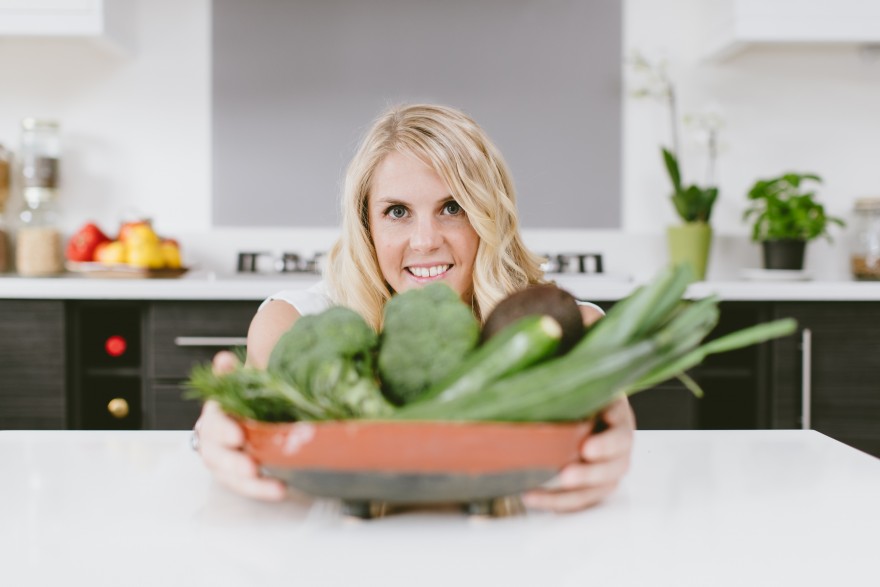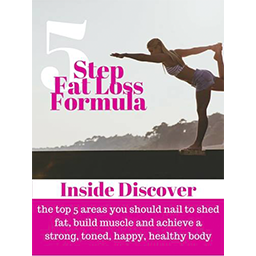I recently wrote about whether or not we should all be avoiding gluten. If you missed it, you can find it here – I knew this would be a topic that a lot of people have questions about.
But today I write about the next piece of the puzzle, I wanted to talk dairy.
Gluten and dairy are two of the common foods that are often eliminated when someone has digestive issues. They are the main two foods, along with sugar and alcohol, that I ask my client’s to eliminate when they follow my gut reset protocol (others can be eggs, legumes, shellfish and seafood).
Just like gluten, reactions to dairy can vary depending on the person and what is going on inside the donut hole. So again, I’d like to clear a little bit of that up and explain my stance on dairy in the diet.
An important thing to remember is that to make information easy to understand, at times I have to over-simplify and generalise. When I work with my clients, I have the opportunity to know more about them, their health history, current habits, medications, stress levels, likes, dislikes, budget and goals. All of this is considered when making a final recommendation.
Lactose Intolerance
One of the common issues with dairy is lactose intolerance. Lactose is the sugar molecule found in dairy. Intolerance is due to the inability to digest lactose due to an inability to produce lactase, the enzyme for lactose digestion. This means that undigested lactose passes to the colon where it can cause bloating, diarrhoea, nausea and gas.
Lactose intolerance is not an immune mediated response to dairy. Failure to digest lactose can be due to:
- genetics, where no lactose is made from birth
- Poor enzyme production which occurs with age
- Inflammation and damage to the small intestine as we may see in dysbiosis, for example, small intestinal bacterial overgrowth.
Poor tolerance of lactose may therefore stem from the common triggers of dysbiosis; poor diet, stress, alcohol, infections, medications, antibiotics, oral contraceptive pill etc.
If lactose intolerance is not genetic, it could potentially be reverse or improved by re-establishing the bacterial balance within the gut and supporting with digestive enzymes including lactase.
Immune-Mediated Reactions (Dairy Sensitivity)
It is important at this point to understand that dairy is made up not only of the sugar component, lactose, but also protein components such as whey and casein and fat components.
It is typically the lactose which may cause problems with intolerance and casein (and sometimes whey) which may be the culprit in immune mediated reactions to dairy.
Immune mediated reactions are reactions which happen in the blood stream. In other words, not in the donut hole.
In order for an immune mediated reaction to occur the intestinal membrane must be leaky. A leaky gut allows proteins to pass into the blood stream.
A leaky gut is associated with dysbiosis and inflammation.
Therefore, immune mediated reactions to casein or whey, require an imbalanced gut.
Therefore, these reactions are a symptoms of the problem, not the problem itself.
The real problem is an imbalanced digestive system.
Immune mediated reactions to dairy may only be temporary, provided we can rebalance the gut environment, reduce inflammation and heal to gut wall (easier said than done).
How would you know you are reacting to dairy?
Apart from experiencing obvious digestive symptoms after consumption, immune mediated reactions to any foods, not just dairy, may also be responsible for extra-intestinal symptoms, systemic symptoms associated with inflammation.
- Joints that ache
- Auto-immune conditions
- PMS
- Hormone imbalances
- Skin complaints
- Asthma
- Anxiety, depression, changes in mood
- Non-specific symptoms like foggy brain or fatigue
Although testing is available, the most reliable (and cost effective) assessment is a trial removal for 4 weeks during which you apply the principles of the 5 R Program (Remove, replace, reinoculated, repair, rebalance), and then reintroduce dairy to note any return of symptoms.
It is important to understand that not all dairy products are made equal:
- Butter, ghee and double cream may contain minimal amounts of dairy proteins and sugars and may well be tolerated
- Hard cheese may be higher in dairy proteins and fats and contain minimal lactose
- Softer cheeses, milk and yoghurts may be higher in lactose
- Fermented yoghurts and milk kefir may be lower in lactose and therefore tolerate
Therefore, when reintroducing dairy products I always recommend this is done in a structured way to assess what “class” of dairy could still be included in the diet.
Reactions to dairy do not necessarily means that dairy needs to be excluded life long.
Working on digestive health and establishing which forms of dairy work best for your body, may mean that you can safely reintroduce dairy back into your diet. For the most part, this rests on restoring digestive balance:
- Optimising the balance of bacteria in the gut: probiotics, fermented foods and a diverse plant based diet
- Ensuring healthy gut membranes: bone broths, vitamin A, D, E and L-glutamine
- Minimising inflammation: omega 3 fatty acids, vitamin A, D E, diverse plant based diet, turmeric, ginger, bromelain
- Ensuring a positive gut immune system: probiotics, saccharomyces boullardi, prebiotic fibre, vitamin A, zinc carnosine, L-glutamine, colostrum, stress management
Other Considerations on Dairy
Gut health aside, one of the concerns with dairy is the Insulin-Like-Growth-Factors and in some cases hormones that may be found in non-organic produce. I usually recommend clients who are experiencing any hormone imbalances, including acne, to be mindful of their dairy intake irrespective of gut health.
In this case, choosing organic dairy where ever possible should be high on the priority list and perhaps not relying too heavily of dairy as a staple, but finding alternative foods to meet their need.
Concerns About Calcium
The concern for many when it comes to avoiding dairy is calcium intake. Many people perceive dairy to be the best source of calcium in the diet, which isn’t actually true.
The following foods all contain more calcium per 100g than the equivalent amount (100ml) of milk.
In mg/100g:
Kelp 1093
Collard Greens 250
Kale 249
Turnips 246
Almonds 234
Parsley 203
Brazil nuts 186
Watercress 151
Sunflower seeds 120
Eating 100g of kale per day, would give approximately the same amount of calcium per day as a 250ml glass of milk.
My Personal Stance on Dairy
At home, we tend to keep dairy to a minimum. The main reason being we choose to get our calories from sources that offer better nutrition (more nutrients for calorie content) and I do have some hormonal symptoms I manage through diet – more information on how I do this in my Happy Hormones Ebook.
I personally don’t drink milk or eat yoghurt. I use nut milks to add to smoothies and coffee.
We do take dairy in small amounts from organic butter, feta cheese and parmesan. We usually go through a 100-200g bar of feta cheese and 50-100g of parmesan per week between two.
Butter seems to last for ever as the primary added fat in my diet is olive oil due to it’s health benefits. At times I also use coconut oil for cooking and other seed oils like avocado or walnut.
I do use an organic whey protein from Pulsin in my smoothies on a weekly basis.
I often recommend to clients they switch up their protein powders, for example, use a rice protein for a week, then a whey protein for a week, then a pea protein for a week and so on.
I must admit, despite my best efforts, this is something I have struggled to do myself because I just love the taste and texture of the Pulsin Whey.
However, more recently I have switched to an unflavoured Beef protein from Bulk Powders which has been an ample substitute. This has mostly been motivated by some digestive issues which I have been having (I intend to share more on this soon).

I run a small Online Women’s Weight Loss Program that offer a personalised nutrition and exercise support to produce life changing and life-lasting results.
If you want to give up the guessing game and have someone just tell you what to do and hold you accountable to actually doing it then this is probably exactly what you have been waiting for.
Life doesn’t get better by chance, it gets better by choice. Now you have a moment where you can choose to take a step towards a very different future and join the community of like minded women who are not just losing weight, but transforming their lives, filling them with happiness and health.
To find out more about how my coaching program can help you, please fill out the application below to book a complimentary breakthrough call and find out out about working with me in more detail.


